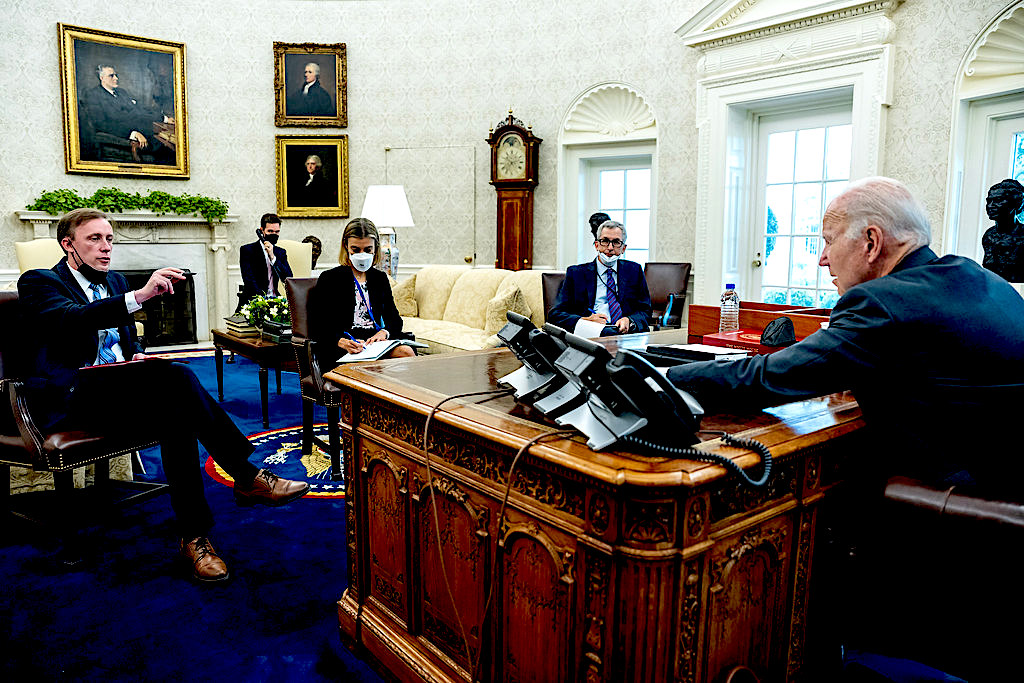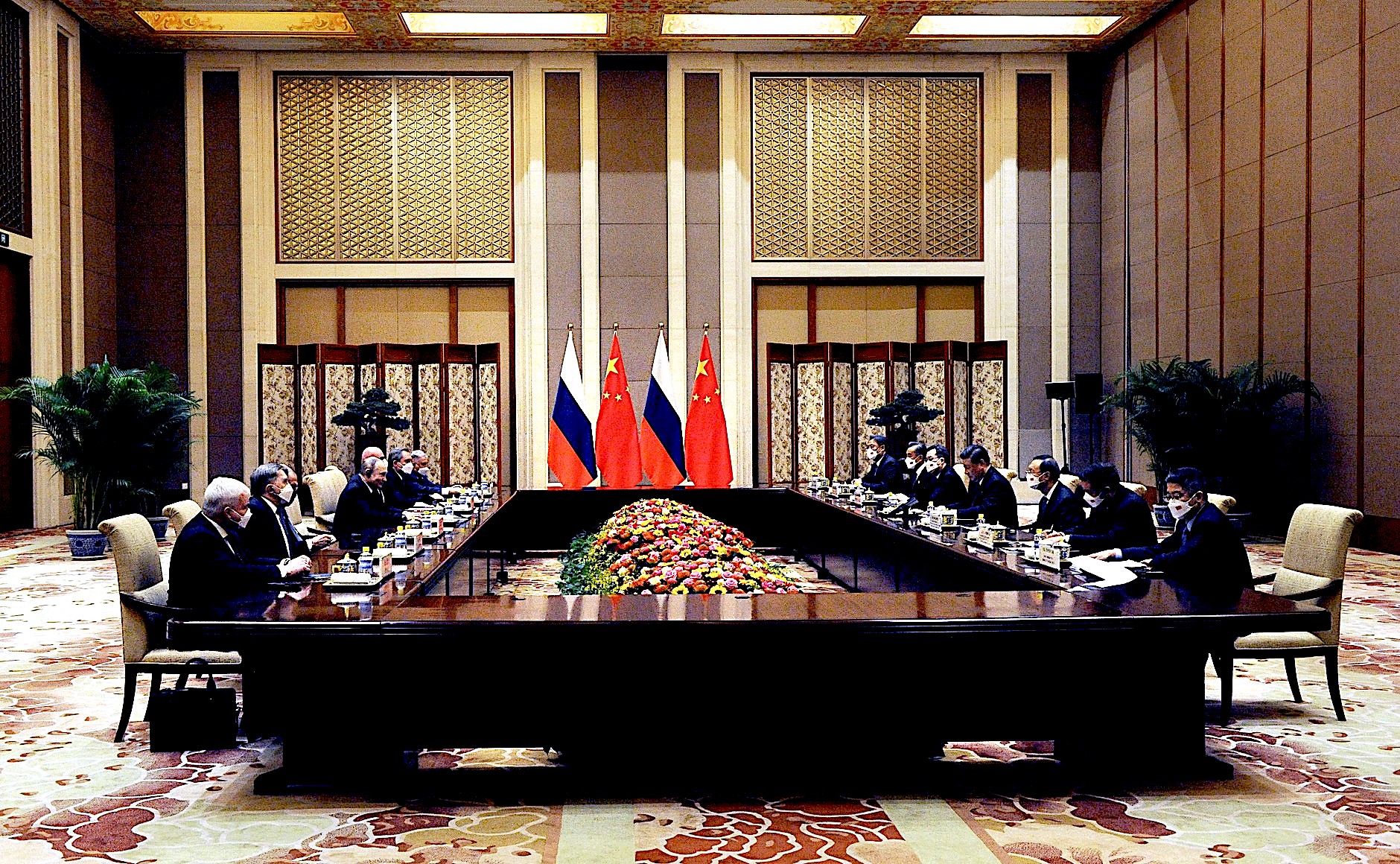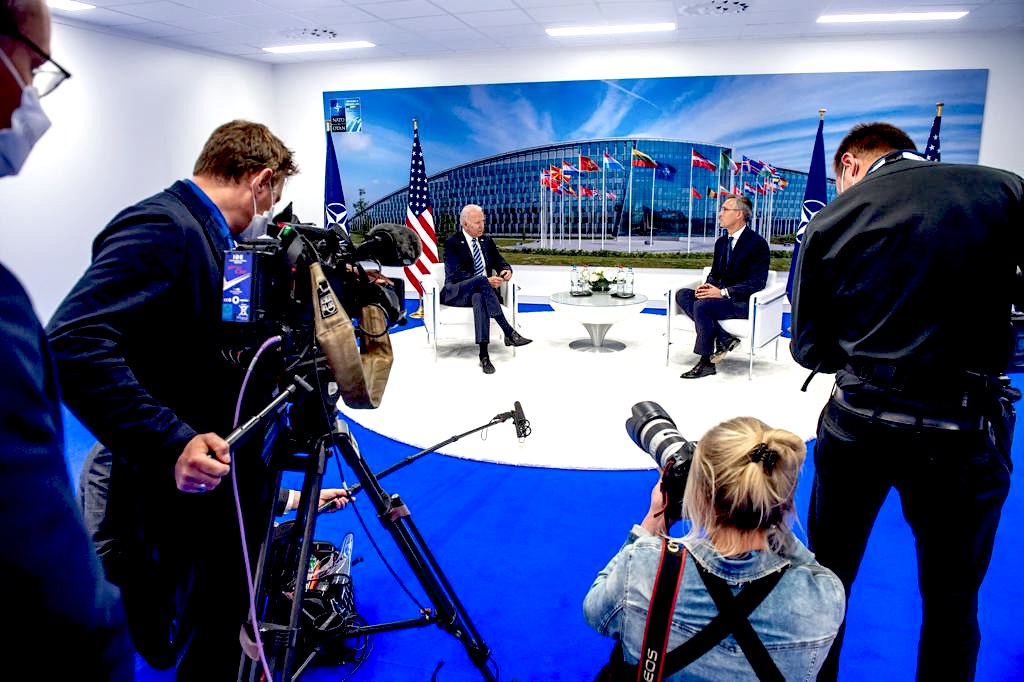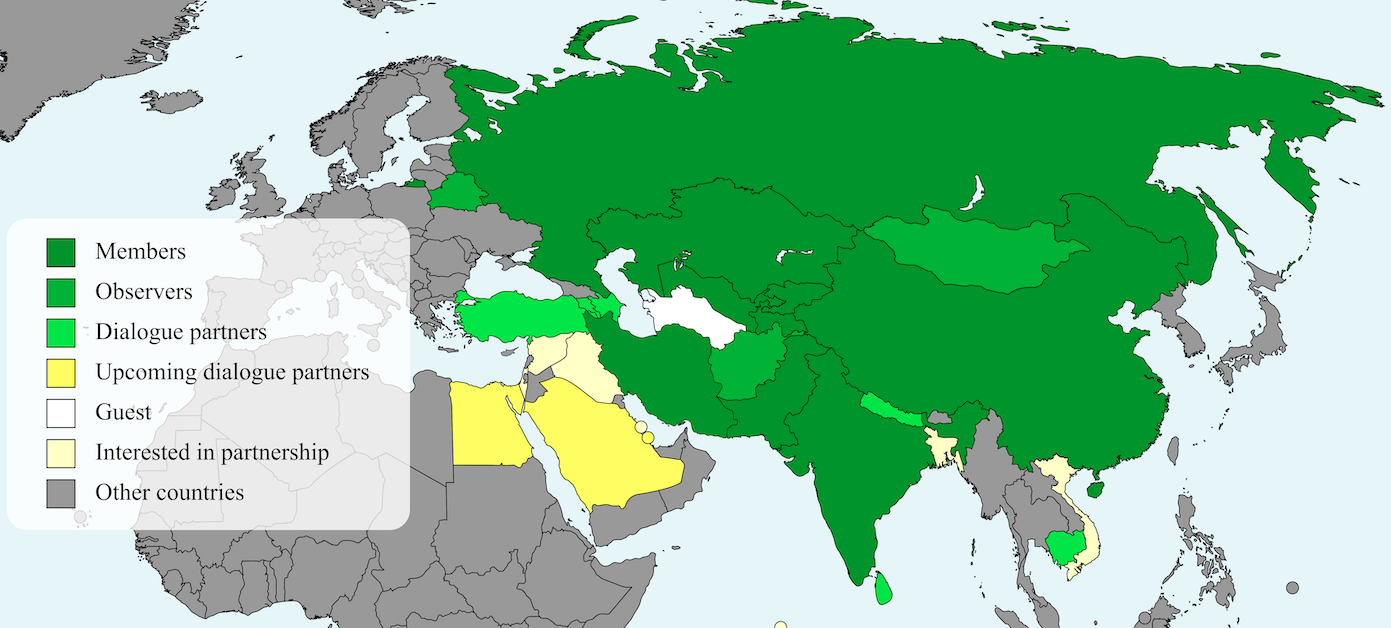Vladimir Putin’s address at the Valdai Club last week, coming on the heels of the Biden administration’s release of its National Security Strategy, shows how the battle lines have been drawn.
By Scott RITTER
Russian President Vladimir Putin’s keynote address at the Valdai Club last Thursday appears to have put Russia on a collision course with the U.S.-led “Rules Based International Order” (RBIO).
The Biden administration two weeks earlier released its 2022 National Security Strategy (NSS), a full-throated defense of the RBIO which all-but declares war on “autocrats” who are “working overtime to undermine democracy.”
These two visions of the future of the world order define a global competition that has become existential in nature. In short, there can be only one victor.
Given the fact that the main players in this competition comprise the five declared nuclear powers, how the world manages the defeat of the losing side will, in large part, determine whether humanity will survive into the next generation.
“We are now in the early years of a decisive decade for America and the world,” U.S. President Joe Biden wrote in the introduction to the 2022 NSS. “The terms of geopolitical competition between the major powers will be set … the post-Cold War era is definitively over, and a competition is underway between the major powers to shape what comes next.”
The key to winning this competition, Biden declared, is American leadership: “The need for a strong and purposeful American role in the world has never been greater.”
The 2022 NSS laid out the nature of this competition in stark terms. Biden claimed:“Democracies and autocracies are engaged in a contest to show which system of governance can best deliver for their people and the world.”
American goals in this competition are clear:
“[W]e want a free, open, prosperous, and secure international order. We seek an order that is free in that it allows people to enjoy their basic, universal rights and freedoms. It is open in that it provides all nations that sign up to these principles an opportunity to participate in, and have a role in shaping, the rules.”

President Joe Biden conferring with National Security Advisor Jake Sullivan, at left, during a phone call with Ukrainian President Volodymyr Zelensky on Aug. 25. (White House, Adam Schultz)
Standing in the way of the accomplishment of these goals, Biden says, are the forces of autocracy, led by Russia and the People’s Republic of China (PRC). “Russia,” he declared,
“poses an immediate threat to the free and open international system, recklessly flouting the basic laws of the international order today, as its brutal war of aggression against Ukraine has shown. The PRC, by contrast, is the only competitor with both the intent to reshape the international order and, increasingly, the economic, diplomatic, military, and technological power to advance that objective.”
Russia & China
Of course, Russia and China take umbrage at Biden’s world view, and in particular their role in it. This objection was voiced back on Feb. 4, when Putin met with Chinese President Xi Jinping in Beijing, where the two leaders released a joint statement that served as a veritable declaration of war against the RBIO.
“The sides [i.e., Russia and China] intend to resist attempts to substitute universally recognized formats and mechanisms that are consistent with international law [i.e., the Law Based International Order (LBIO)],” the joint statement read, “for rules elaborated in private by certain nations or blocs of nations [i.e., the RBIO], and are against addressing international problems indirectly and without consensus, oppose power politics, bullying, unilateral sanctions, and extraterritorial application of jurisdiction.”

Russian President Vladimir Putin holding talks in Beijing with Chinese President Xi Jinping on Feb. 4. (Kremlin.ru, CC BY 4.0, Wikimedia Commons)
Far from seeking confrontation, Russia and China, in their joint statement, went out of their way to emphasize the need for cooperation among nations:
“The sides reiterate the need for consolidation, not division of the international community, the need for cooperation, not confrontation. The sides oppose the return of international relations to the state of confrontation between major powers when the weak fall prey to the strong.”
Russia and China believe the problems confronting the world come from pressures brought on by the collective West, led by the United States. This point was emphasized by Putin in his Valdai address.
“[I]t can be said,” Putin noted, “that in recent years, and especially in recent months, this West has taken a number of steps toward escalation. Strictly speaking, it always relies on escalation; that is not new. These are the instigation of the war in Ukraine, the provocations around Taiwan, and the destabilization of global food and energy markets.”
According to Putin, there is little that can be done to avoid this escalation, since the root of the problem is the very nature of the West. He said:
“The Western model of globalization, neocolonial at its core, was also built on standardization, on financial and technological monopolism, and on the erasure of all differences. The task was clear: to strengthen the unconditional domination of the West in the world economy and politics, and to this end to put at its service the natural and financial resources, the intellectual, human, and economic capacities of the entire planet, under the guise of the so-called new global interdependence.”
Western Supremacy
There can be no longer any concept of cooperation between Russia and the West, Putin said, because the American-dominated West steadfastly adheres to the supremacy of its own values and systems, at the exclusion of all others.
Putin took aim at this exclusivity. “Western ideologists and politicians,” he said, “have been telling the whole world for many years: There is no alternative to democracy. However, they talk about the Western, so-called liberal model of democracy. They reject all other variants and forms of democracy with contempt and – I would like to emphasize this – arrogance.”
Moreover, Putin noted, “[T]he arrogant pursuit of world domination, of dictating or maintaining leadership by dictation, is leading to the decline of the international authority of the leaders of the Western world, including the United States.”

U.S. President Joe Biden meeting with NATO Secretary General Jens Stoltenberg, June 14, 2021. (NATO)
The solution, Putin declared, is to reject the exclusivity of the American RBIO model. “The unity of humanity is not based on the command ‘do it like me’ or ‘become like us,’” Putin said, noting rather that “it is formed taking into account and based on the opinion of all and with respect for the identity of each society and nation. This is the principle on which long-term engagement in a multipolar world can be built.”
Battle Defined by Ideas
The battle lines have been drawn — American-led singularity on one side, and a Russian-Chinese led multipolarity on the other.
A direct military-on-military clash between the proponents of the RBIO and those backing the LBIO would, literally, go nuclear, destroying the very world they are competing to control.
As such, the looming Armageddon won’t be a battle defined by military power, but rather of ideas — of which side can sway the opinion of the rest of the world to come over to its side. Herein lies the key to determining who will win — the established RBIO, or the up-and-coming LBIO?
The answer increasingly seems clear — it’s the LBIO by a long shot.
America is in decline. The American model of democracy is failing at home, and as such is incapable of being responsibly projected on the world stage as something worthy of imitation. The RBIO is coming apart at the seams.
On every front, it is being confronted by organizations which embrace the LBIO vision and failing. The G-7 is losing against BRICS; NATO is fracturing while the Shanghai Cooperation Organization is expanding. The European Union is collapsing, while the Russian-Chinese vision for a trans-Eurasian economic union is thriving.

Map of the Shanghai Cooperation Organization, December 2021. (Firdavs Kulolov, CC BY-SA 4.0, Wikimedia Commons)
“Power over the world,” Putin declared at Valdai, “is exactly what the so-called West has been betting on. But this game is certainly a dangerous, bloody and, I would say, dirty game.”
There can be no avoiding the coming conflict. But, as Putin noted, paraphrasing the Biblical passage from Hosea 8:7, “He who sows the wind will, as the saying goes, reap the storm. The crisis has indeed become global; it affects everyone. There is no need to be under any illusions.”
To this should be added Matthew 24:6: “And you will hear of wars and rumors of wars. See that you are not troubled; for all these things must come to pass, but the end is not yet.”
All things must come to pass.
But the end is not yet.
The decline of American hegemony in global affairs does not require the four horsemen of the apocalypse to be unleashed on the planet.
America has had its moments. As Paul Simon sang in his classic song, American Tune, “We [America] come in the age’s most uncertain hour.”
History will never forget the American Century, where the strength of its industry and people not once, but twice, came to the aid of the world “in its most uncertain hour.”
But the age of American supremacy has passed, and it’s time to move on to what the future holds — a new age of multi-polarity where America is but one among many.
We can, of course, decide to resist this transition. Indeed, Biden’s 2022 NSS is literally a roadmap of such a resistance. We can, as the poet Dylan Thomas penned, opt not to “go gentle into that good night”, but rather “Rage, rage against the dying of the light.”
But at what cost? The end of American singularity does not have to mean the end of America. The American dream, once removed from the need to dominate the world to sustain it, can be an attainable possibility.
The alternative is grim. Should the U.S. opt to resist the tides of history, the temptation to use the final weapon of existential survival — America’s nuclear arsenal — will be real.
And no one will survive.
In the end, the decision of whether to “burn the village in order to save it” is up to the American people.
We can buy into the flawed “democracy versus autocracy” suicide pact inherent in the 2022 NSS, or we can insist that our leaders use what remains of American leadership and authority to help guide the planet into a new phase of multilateralism where our nation exists as one among equals.








